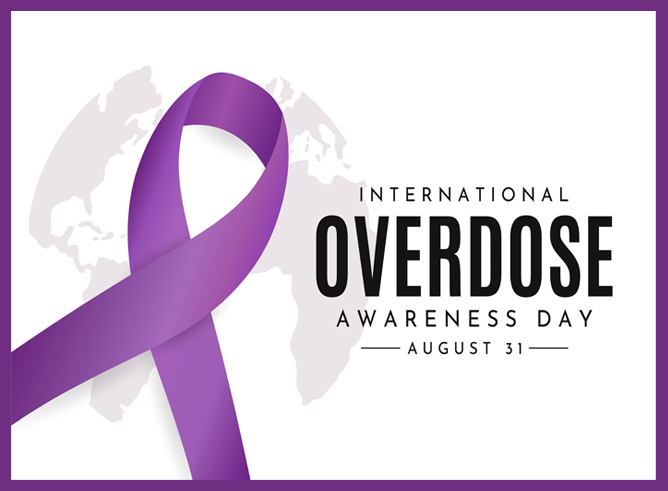
For more than two decades, Aug. 31 has carried global significance as the commemoration of International Overdose Awareness Day to honor and acknowledge the many lives lost to drug overdose while also helping to shoulder the weight of that loss and related grief felt by families, friends and society at large.
Nationwide from March 2022 to February 2023, there were 109,940 predicted overdose deaths, according to the Centers for Disease Control and Prevention. A large portion of those overdoses involved drugs classified as opioids, leading many to describe the situation as an opioid crisis.
“Opioids are more dangerous because you could overdose more easily,” said Dr. Rachel Smith, an assistant professor in the Department of Psychological and Brain Sciences at Texas A&M University. “They spike your blood levels very fast, making you more likely to overdose if you're misusing it.”
Many drug users choose to use opioids because of their intensity and speed, while others use them for their “downer” effect that provides a sense of relaxation or numbness, Smith said.
“Opioids are like your brain's reward system,” Smith said. “Our brain actually has opioid receptors. For instance, if you have a runner’s high, you release endogenous opioids, and that's what your system does to make you feel better.”
When used correctly, Smith notes, these medications can help patients coping with severe pain. For example, opioids such as morphine are often used to aid in recovery after major surgery. Because they do not cause damage to organs, opioids can be used long-term, Smith adds.
“A lot of those extended-release capsules have a coating around them,” Smith said. “So, if you take them properly and they go to your stomach, they slowly release. … But if you crush them up, you're just getting all of it at once. It's not designed to be taken that way.”
When used incorrectly, opioids can lead down a dangerous path of addiction and potential overdose — even death, if the drugs are laced with increasingly common impurities like xylazine and fentanyl.
“With opioids, there are behaviors that become red flags in terms of people, especially when they're starting off on prescription opioids,” Smith said. “Behaviors such as shopping around to try to get multiple doctors to give prescriptions are signs of drug abuse.”
Many overdose-related deaths are preventable, and chances are that drug addiction affects someone in your life. The more we know, the more of an impact we can make in bringing those numbers down.
Addiction can permanently alter the state of one’s brain while simultaneously working to negatively impact individuals' lives and relationships, said Dr. Brian Anderson, a professor and neuroscientist in Texas A&M Psychological and Brain Sciences and an expert on addiction.
“In life, you are motivated to seek out experiences that make you feel good because of learning processes that drugs of abuse stimulate,” Anderson said. “The rush of brain activation caused by drugs of abuse also results in long-term changes in the brain’s reward system in which that system becomes less responsive, essentially compensating for the overly strong stimulation caused by the drug in an attempt to regulate itself.”
While the overdose crisis seems daunting, Smith says there are a multitude of resources available to users as they fight their battle with addiction. She cites rehabilitation, medications, meditation and therapy as some of the most common but notes there are many available options.
“Many overdose-related deaths are preventable, and chances are that drug addiction affects someone in your life," Anderson added. The more we know, the more of an impact we can make in bringing those numbers down.”
For more information, visit the National Institute on Drug Abuse. For resources and aid, the Substance Abuse and Mental Health Services Administration National Helpline is available 24 hours a day.

